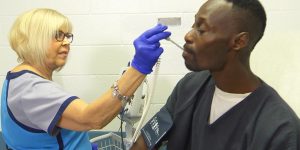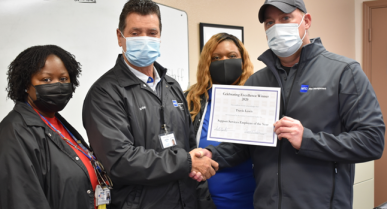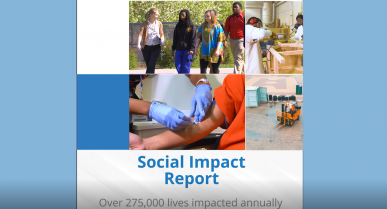MTC Medical: A Brief Look at Correctional Healthcare
MTC Medical was created in 2005. The new division gave MTC the opportunity to provide high-quality medical services to the men and women at some of MTC’s facilities.
Jean Brock is the senior director of medical operations. “Currently we have ten MTC facilities which we operate and one contract jail in Florida. So, all together we take care of about 15,000 inmates.”
She explained some of the challenges in providing correctional healthcare.
 “It’s changed a lot. We actually have sicker inmates these days, and they are getting older. They serve longer sentences and therefore we have to provide more complex care. Also, the cost of services in prisons has increased dramatically and customers expect more services for less money. We made a lot of progress in the last couple of years. And, one of the things that has been most significant is that we have brought consistency across the board to all of our facilities. One of the other changes we have made is that we have implemented some strategic agreements, where we could, for pharmacy needs, for some hospitalization and telemedicine. That helps brings some cost saving to us where we can. Because, it’s hard to control costs in health care, but we have been doing an excellent job of that. But, one of the things we’re most proud of is our training. Every month we send out different training materials, so that all of our staff are learning the same thing every month. So, we have consistency in their education.”
“It’s changed a lot. We actually have sicker inmates these days, and they are getting older. They serve longer sentences and therefore we have to provide more complex care. Also, the cost of services in prisons has increased dramatically and customers expect more services for less money. We made a lot of progress in the last couple of years. And, one of the things that has been most significant is that we have brought consistency across the board to all of our facilities. One of the other changes we have made is that we have implemented some strategic agreements, where we could, for pharmacy needs, for some hospitalization and telemedicine. That helps brings some cost saving to us where we can. Because, it’s hard to control costs in health care, but we have been doing an excellent job of that. But, one of the things we’re most proud of is our training. Every month we send out different training materials, so that all of our staff are learning the same thing every month. So, we have consistency in their education.”
MTC believes in training its employees, and recently held a conference with MTC directors of nursing and health services administrators (HSA) from each facility. Jean believes it makes a difference.
“This year our HSA conference, which we just held recently was extremely successful. And, the topic was mental health. We realize that many nurses come into the field knowing clinical aspects of medical care. But, they don’t often know about mental health. So, we brought our internal experts in, and we trained them on the phases of mental illness. How it’s treated; how you treat patients with mental illness. And, also how to do crisis intervention. So, it was a fabulous conference and it was very successful. And, as correctional healthcare has evolved, it’s become a profession and a career. The people who work for us are highly-trained professionals, and I believe they’re the best in correctional health care.”







